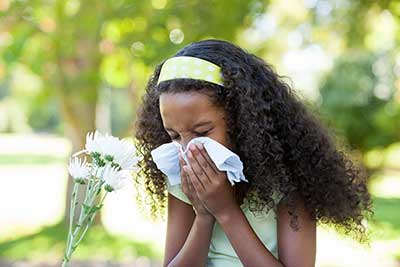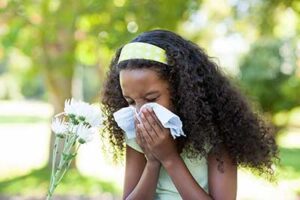 It seems everyone is allergic to something, whether it is food or the environment. So, what is this all about and why are allergic reactions increasing? It seems our younger population is especially affected.
It seems everyone is allergic to something, whether it is food or the environment. So, what is this all about and why are allergic reactions increasing? It seems our younger population is especially affected.
We need a simple lesson in physiology (the study of how the body works) to understand this. First, we have a mucosa lining from our lips to our anus and it runs through our lungs, sinus passages and urinary passages. If this lining becomes irritated, it releases histamine—causing inflammation—called an allergic reaction. We can suppress it with medicines, such as prednisone or antihistamines which temporarily reduce inflammation by suppressing the immune system. Long term suppression of the immune system causes permanent damage and when you need your immune system to fight a disease or pathogen it will not be able to work effectively—leaving you more vulnerable to illnesses.
It is not normal to be hyperreactive to food and our environment—we are designed to eat food and live in our world. The answer is not eliminating more and more foods from our diet and staying inside a bubble. The answer is to make an allergic person more resilient or less reactive to the allergens (particles that cause a reaction). The mucosa membrane is supposed to be resilient. However, due to drugs (e.g., antibiotics), which are frequently over prescribed, the mucosa is weakening and has become highly reactive. It doesn’t take much to weaken this lining, so everything begins to irritate it causing inflammation. With inflammation our throat, lungs, sinuses, urinary and digestive tracts begin to swell and close up, which can be life threatening.
To alter this situation, we need to be more cautious about what we take into our bodies. Antibiotics should be reserved for life threatening illnesses (i.e., meningitis accurately diagnosed—not the threat of it by an inept doctor). Antibiotics used today are broad spectrum, which are like nuclear weapons—causing great harm to our mucosa lining. When I was young, we were given 3-days of penicillin on rare occasions—not 10-days of broad-spectrum antibiotics several times a year like most children today.
Vaccines are also an issue. If you believe this insult to the immune system is beneficial, consider minimizing the number of vaccines you give your children. The youngest population (those who are given the most vaccines) are the most prone to allergies.
Poor nutrition and inflammatory foods also allow the membrane to be highly reactive. When I was in my early 20s, I became allergic to the environment and food. My diet was not good and was inflammatory. My nose ran continuously. The healthier I became, the less reactions occurred.
This mucosal membrane can be repaired although it takes some work. It requires eating an anti-inflammatory diet, along with supplements, avoiding medications as much as possible, adequate water and Omega-3s. For a full evaluation on strengthening this lining—to become less allergic and reactive—a visit with a naturopathic physician is in order. They can identify your weaknesses and work to solve the root cause, instead of masking the symptoms.
